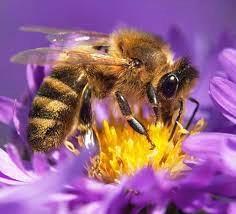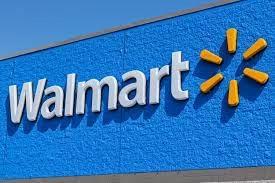 As part of the increasingly evident environmental and social activism demonstrated by Walmart, the Company will be introducing a requirement that suppliers support honeybee and other insect populations responsible for pollination.
As part of the increasingly evident environmental and social activism demonstrated by Walmart, the Company will be introducing a requirement that suppliers support honeybee and other insect populations responsible for pollination.
The intent is laudable and Walmart as a major customer of agricultural producers has an obligation to encourage suppliers to make changes that benefit the environment and ultimately humanity. Walmart is asking suppliers of fresh produce and floral items to apply integrated pest management programs by 2025. Changes will include elimination of chlorpyrifos, (that in any event will be justifiably be banned in the near future in the U.S.) and to cease using specific neonicotinoid pesticides. Compliance will be subject to audit and annual progress reports. To increase the population of pollinators, Walmart is urging suppliers to restore or establish pollinator habitats by 2025, extending over at least three percent of their owned or operated land area.
 Walmart has undertaken to avoid selling invasive plant species and to cooperate with local organizations to establish pollinator habitats. The future Walmart headquarters will incorporate plant-pollinator areas including meadows planted near lakes to provide an environment suitable for insects and birds. Walmart intends to combine sustainability and environmental advocacy by recommending that pollinator habitats be established around arrays of solar panels, installations representing yet another step towards sustainability. Walmart recently provided funding to the Cornell University Laboratory of Ornithology and the Cornell Atkinson’s Center for Sustainability to encourage training of citizen scientists to monitor the population of pollinators and to provide assistance in planning farms and future landscape practitioners.
Walmart has undertaken to avoid selling invasive plant species and to cooperate with local organizations to establish pollinator habitats. The future Walmart headquarters will incorporate plant-pollinator areas including meadows planted near lakes to provide an environment suitable for insects and birds. Walmart intends to combine sustainability and environmental advocacy by recommending that pollinator habitats be established around arrays of solar panels, installations representing yet another step towards sustainability. Walmart recently provided funding to the Cornell University Laboratory of Ornithology and the Cornell Atkinson’s Center for Sustainability to encourage training of citizen scientists to monitor the population of pollinators and to provide assistance in planning farms and future landscape practitioners.
Once upon a time the industry simply sold eggs to supermarket chains at the best price that could be negotiated with concern only for quality, safety and adherence to federal, state and local regulations. Now capital investment, time and resources are progressively required to comply with welfare, environmental and sustainability requirements. These enhancements ultimately burnish the reputation and image of the chain. Accordingly producers should be fairly compensated in price for their additional costs. If Walmart wishes to adopt the policies of an up-market chain in the E.U. then they deserve the support of their suppliers but at a price commensurate with the incremental expenditure involved. Walmart cannot build a reputation as a progressive, environmentally and socially conscious company, satisfying the altruistic inclinations of the Family-controlled Board while implementing a “how-low-can-you-go below the price discovery quotation’ approach to pricing. Chains such as Marks and Spencers in the U.K. and Albert Hein in the Netherlands impose high standards on their suppliers but pay reasonable compensation for compliance. The emerging problem with Walmart is that they aspire to a Whole Foods image but are principally selling at low prices to a demographic that is more concered with their budgets than concepts such as welfare, sustainability and the environment. Walmart cannot realistically expect to enhance their image and increase EPS on margins supported by the efforts and expenditure of their suppliers.